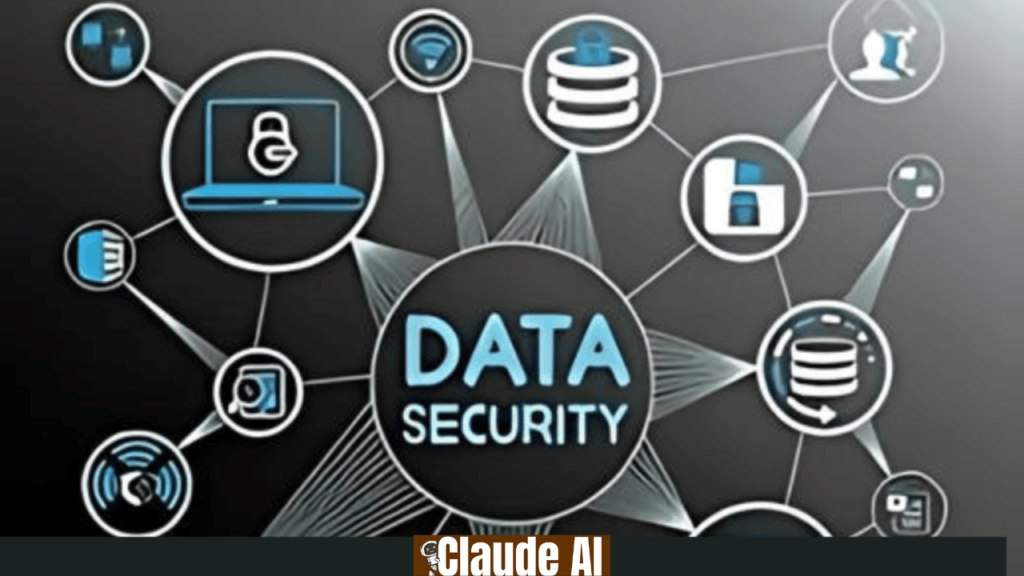How Does Claude 3.5 Ensure the Privacy and Security of My Data? In an age where data privacy and security are paramount, understanding how advanced AI models like Claude 3.5 protect user information is crucial. This article explores the mechanisms and strategies employed by Claude 3.5 to ensure the privacy and security of user data.
Artificial intelligence (AI) has transformed the way we interact with technology, bringing about significant advancements in various fields, including healthcare, finance, and education. However, as AI systems become more sophisticated, concerns regarding data privacy and security have emerged. Claude 3.5, a state-of-the-art AI language model, prioritizes user privacy and data security through various methods. This article delves into the ways Claude 3.5 safeguards your data, focusing on architecture, compliance, encryption, user control, and ethical considerations.
What is Claude 3.5?
Claude 3.5 is an advanced language model developed to understand and generate human-like text. It employs sophisticated algorithms to process and analyze data, providing insights and engaging in conversations. Given its capabilities, it interacts with users across various platforms, making it essential to implement robust data privacy and security measures.
The Importance of Data Privacy and Security
As AI systems collect and process vast amounts of data, ensuring privacy and security is critical. Users are increasingly aware of how their data is utilized, leading to a demand for transparency and accountability. For Claude 3.5, maintaining user trust is vital for its success and longevity in the market.
Data Privacy Mechanisms in Claude 3.5
1. Data Minimization
Data minimization refers to the practice of limiting data collection to what is strictly necessary for the intended purpose. Claude 3.5 adheres to this principle by:
- Collecting Only Necessary Data: The model is designed to gather only the information needed to improve its performance and enhance user experience. This limits the exposure of personal data.
- Anonymization Techniques: Any data collected is anonymized to ensure that it cannot be traced back to individual users. This step is crucial for protecting user identities.
2. User Consent
User consent is a fundamental aspect of data privacy. Claude 3.5 ensures that:
- Informed Consent: Users are informed about the type of data collected and the purposes for which it is used. This transparency allows users to make educated decisions regarding their data.
- Opt-In Mechanisms: Users have the option to opt in or out of data collection processes, giving them control over their personal information.
3. Data Storage Practices
The way data is stored can significantly impact its security. Claude 3.5 employs the following practices:
- Secure Storage Solutions: Data is stored in secure environments that adhere to industry standards. These solutions protect against unauthorized access and data breaches.
- Regular Audits: Frequent audits of data storage practices are conducted to ensure compliance with security protocols and to identify potential vulnerabilities.
Data Security Measures in Claude 3.5
1. Encryption Protocols
Encryption is a critical component of data security. Claude 3.5 utilizes:
- End-to-End Encryption: This ensures that data is encrypted during transmission, making it unreadable to unauthorized parties. Users can communicate with the model without fear of interception.
- Data-at-Rest Encryption: Data stored in databases is also encrypted, providing an additional layer of security in case of a data breach.
2. Access Controls
Access controls help manage who can access sensitive data. Claude 3.5 implements:
- Role-Based Access Control (RBAC): Only authorized personnel have access to user data based on their roles. This minimizes the risk of internal data breaches.
- Multi-Factor Authentication (MFA): Users are encouraged to enable MFA to add an extra layer of security to their accounts. This requires multiple forms of verification before granting access.
3. Incident Response Plans
In the event of a data breach, having a robust incident response plan is essential. Claude 3.5 ensures:
- Immediate Response Protocols: There are established protocols to respond to data breaches promptly, minimizing potential damage.
- User Notifications: In the case of a significant breach, users are informed promptly, detailing the nature of the breach and steps taken to mitigate its effects.
Compliance with Regulations
1. GDPR Compliance
The General Data Protection Regulation (GDPR) is a comprehensive data protection law in the European Union. Claude 3.5 adheres to GDPR requirements by:
- User Rights: Users have the right to access their data, request corrections, and demand deletion. Claude 3.5 facilitates these requests efficiently.
- Data Processing Agreements: Any third parties involved in data processing are required to comply with GDPR regulations, ensuring that user data is handled responsibly.
2. CCPA Compliance
The California Consumer Privacy Act (CCPA) provides California residents with specific rights regarding their personal information. Claude 3.5 complies with CCPA by:
- Transparency: Users are informed about the categories of personal data collected and the purposes of collection.
- Opt-Out Options: California residents have the option to opt out of the sale of their personal information, enhancing user control over data privacy.
User Control and Transparency
1. User Dashboards
Claude 3.5 provides user dashboards that offer transparency regarding data usage. Users can:
- View Collected Data: Users can access information on what data has been collected and how it is being used.
- Manage Preferences: Users have the ability to modify their data preferences, including opting out of certain data collection practices.
2. Regular Updates and Communication
Maintaining open communication with users is crucial for building trust. Claude 3.5 ensures:
- Regular Updates: Users receive updates regarding changes in privacy policies or data practices, ensuring they are always informed.
- Feedback Mechanisms: Users can provide feedback regarding their experiences, helping to identify areas for improvement in data privacy and security practices.
Ethical Considerations in AI
1. Bias and Fairness
Data privacy and security are closely linked to ethical considerations, including bias and fairness. Claude 3.5 addresses these issues by:
- Diverse Training Data: The model is trained on diverse datasets to minimize biases in outputs, promoting fair treatment of all users.
- Ongoing Evaluation: Regular evaluations are conducted to identify and rectify any biases present in the model’s responses.
2. Accountability
Accountability is essential for maintaining user trust. Claude 3.5 promotes accountability by:
- Transparent Policies: Clear privacy policies outline data usage, ensuring users understand their rights and the responsibilities of the AI.
- Third-Party Audits: Independent audits of data practices can validate compliance with privacy and security standards, providing users with assurance.

Future Directions in Data Privacy and Security
1. Advancements in AI Technology
As AI technology continues to evolve, so too will data privacy and security measures. Claude 3.5 is likely to incorporate:
- Enhanced Privacy Features: Future versions may include advanced privacy features such as differential privacy, allowing for data analysis without compromising individual identities.
- Improved User Controls: Ongoing improvements in user control mechanisms can empower users to manage their data more effectively.
2. Collaborative Approaches
Collaboration between AI developers, regulatory bodies, and users will be essential for shaping future privacy practices. Claude 3.5 is committed to:
- Engagement with Stakeholders: Engaging with users and stakeholders can lead to better understanding and implementation of data privacy best practices.
- Adaptation to Regulatory Changes: Staying informed about changes in privacy regulations allows Claude 3.5 to adapt its practices accordingly.
Conclusion
Claude 3.5 is dedicated to ensuring the privacy and security of user data through a multifaceted approach that includes data minimization, robust encryption, compliance with regulations, and user empowerment. As concerns about data privacy continue to grow, the model’s commitment to transparency, ethical considerations, and ongoing advancements positions it as a leader in the AI space. By prioritizing user trust and security, Claude 3.5 not only enhances its functionality but also paves the way for a more responsible and ethical AI future.
FAQs
1. What measures does Claude 3.5 take to protect user data?
Claude 3.5 employs data minimization, end-to-end encryption, secure storage solutions, and role-based access control to protect user data from unauthorized access.
2. How does Claude 3.5 ensure user consent?
Users are informed about the data being collected and its purpose. They have the option to opt in or out of data collection, ensuring informed consent.
3. Is my data anonymized when using Claude 3.5?
Yes, Claude 3.5 anonymizes collected data to ensure that it cannot be traced back to individual users, protecting their identities.
4. How does Claude 3.5 comply with data protection regulations?
Claude 3.5 adheres to regulations like the GDPR and CCPA by ensuring user rights to access, correct, and delete their data, as well as providing transparency about data usage.
5. What should I do if I have concerns about my data privacy with Claude 3.5?
Users can review privacy policies, manage their data preferences through user dashboards, and provide feedback to the developers regarding any concerns.
6. How does Claude 3.5 handle data breaches?
In the event of a data breach, Claude 3.5 has established incident response protocols to mitigate damage and promptly notify affected users.
7. Can I control what data Claude 3.5 collects about me?
Yes, users can manage their data preferences and choose what information to share, giving them control over their personal data.
8. What ethical considerations are in place regarding data use?
Claude 3.5 implements diverse training datasets to minimize bias and ensures accountability through transparent policies and independent audits.
